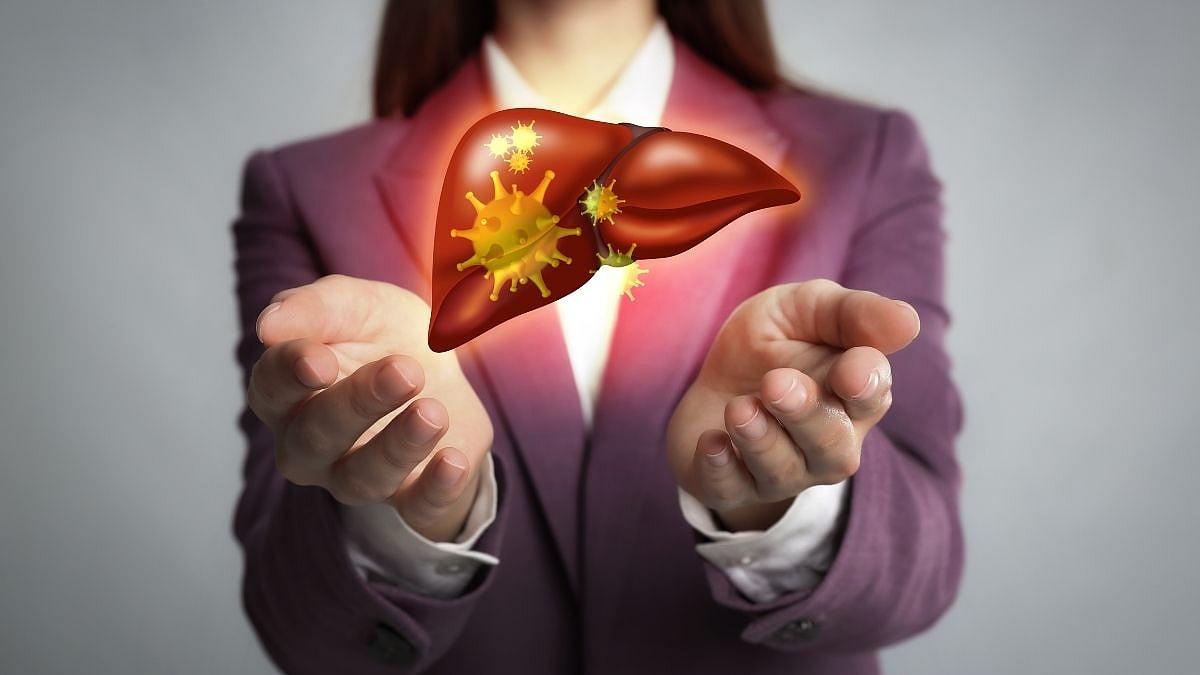When it comes to health care, your liver health may not be your highest priority, but the day it breaks down there wouldn’t be any other crucial thing on your mind. It doesn’t cause any visible warning sign till in its advanced stage.
Understanding hepatitis
Hepatitis means ‘inflammation of the liver’. Hepatitis viruses (A, B, C, D, E) are the most common causes of hepatitis. Dr Paritosh Baghel, Senior Consultant-Internal Medicine, S L Raheja Hospital Mahim, throws light saying, “Hepatitis A and E are food and water-borne infections that cause acute hepatitis, typically presenting with jaundice. Hepatitis B and C virus infections are transmitted through blood contact, needle injuries, and from mother to child during pregnancy. Most of the other forms of hepatitis are non-contagious.”
For early detection, one needs to be on the lookout for symptoms of hepatitis like fatigue, weakness, malaise or fever in the acute stage, all of which can be very vague.
“Jaundice is the most common symptom of hepatitis. Simple blood tests, such as liver function tests can detect hepatitis. Sonography of the abdomen and various specialized tests can identify its cause,” informs Dr.Baghel. “Hepatitis A and E resolve with supportive treatment and do not lead to long-term complications. Both hepatitis B and C are treatable. However, regular monitoring is essential to prevent complications. Autoimmune hepatitis is also treatable. It is important to remember that early diagnosis and treatment can prevent the progression of hepatitis.”
Silent strain
The initial red flags of liver problems can hold sustained exhaustion, nausea, loss of appetite, and jaundice. Other early pointers might include abdominal pain or swelling, easy bruising, and dark urine or pale stools.
Hepatitis, particularly chronic Hepatitis B and C, is often dubbed a "silent disease" because symptoms may not appear until the liver is significantly damaged. In India, with over 40 million people living with HBV and up to 12 million with HCV, many patients remain undiagnosed until cirrhosis or liver cancer develops. “But the notion that one must dramatically change their lifestyle to protect or support liver health is misleading. Micro-adjustments in routine behaviour can offer substantial protection,” observes Dr Amey Sonavane, Consultant Gastroenterology & Hepatology, Apollo Hospitals Navi Mumbai, adding, “The biggest oversight remains vaccination — despite being preventable, HBV continues to spread in adults due to poor adult immunization uptake. A three-dose Hepatitis B vaccine series is over 95% effective when completed, yet remains under-prescribed in routine clinical settings.”
Liver care
The liver is one of the most hardworking organs in our body, quietly handling over 500 vital functions, including detoxifying the blood, processing nutrients, and fighting infections. But liver diseases like viral hepatitis often go unnoticed until significant damage has already occurred.
Dr Somnath Chattopadhyay, Consultant and Head of Department, Hepato-Pancreato-Biliary Surgery and Liver Transplant, Kokilaben Dhirubhai Ambani Hospital, Mumbai, says, “The good news is you don’t need a drastic lifestyle overhaul to protect your liver. Simple habits like drinking enough water, eating a balanced diet (rich in fruits, vegetables, whole grains, and lean proteins), avoiding processed and fatty foods, and exercising three to four times a week can go a long way. Stopping alcohol, getting vaccinated against hepatitis A and B, and going for regular health check-ups also help.” These small steps can prevent liver strain and keep it functioning well.
Detox myths vs facts
There are many misconceptions around liver detox. In fact, crash diets or supplements without medical advice can do more harm than good. The liver does not require detoxification from external agents - it is inherently equipped to neutralise toxins and metabolise waste. Instead of expensive remedies, support your liver with healthy food, adequate sleep, and regular exercise advises Dr. Chattopadhyay.
A proven method to “detox” is not consumption-based — it’s about removing exposure to pollutants and contaminants, not including supplements with uncertain efficacy. Dr. Sonavane points outs, “Clinically, the best way to support liver function is by minimising what burdens it. Overuse of herbal remedies and excessive green tea extracts found in unregulated supplements, have been linked to cases of drug-induced liver injury.”
The biggest myth is that certain juices or herbal teas can detox the liver. Dr. Jatin Yegurla, Consultant Medical Gastroenterologist, Apollo Hospitals, reveals, “In fact, some unregulated herbal remedies can harm the liver further. What works is prevention through vaccination, avoiding unsafe injections or tattoos, and getting tested. Hepatitis C is curable with antiviral treatment. Only a blood test can confirm liver function or hepatitis infection.” You can get regular health checks which include liver parameters using home healthcare services and get consultation with a doctor. Early diagnosis and treatment—not fad detoxes—are the real solution.
Diet for a healthy liver
For those inflicted with hepatitis, nutritionist Vanshika Dhingra suggests a fibre-rich diet, “A diet rich in fruits, vegetables, whole grains, and lean protein sources supports liver function and overall health. Particularly, garlic, beetroot, spinach, green tea, olive oil, and cruciferous vegetables are beneficial. Avoid processed foods and sugary drinks at all costs.” For good liver health, limit salt intake and avoid excessive intake of sodium.
Be kind to your liver
Alcohol consumption is the most dangerous. Drinking hard liquor can scar the liver.
Pesticides and chemicals including household cleaning products can impact liver health.
Keep fit and eat mindfully. Weight management should form a part of your wellness habit including eating right.
Beware of medications as some are harmful to liver. Do not self-medicate and always follow exact dosage as prescribed by your healthcare personnel.
Exercise regularly.
Get vaccinated for Hepatitis A & B.
Ensure safe drinking water.
Regular liver check-ups if at risk.
Stay hydrated.












